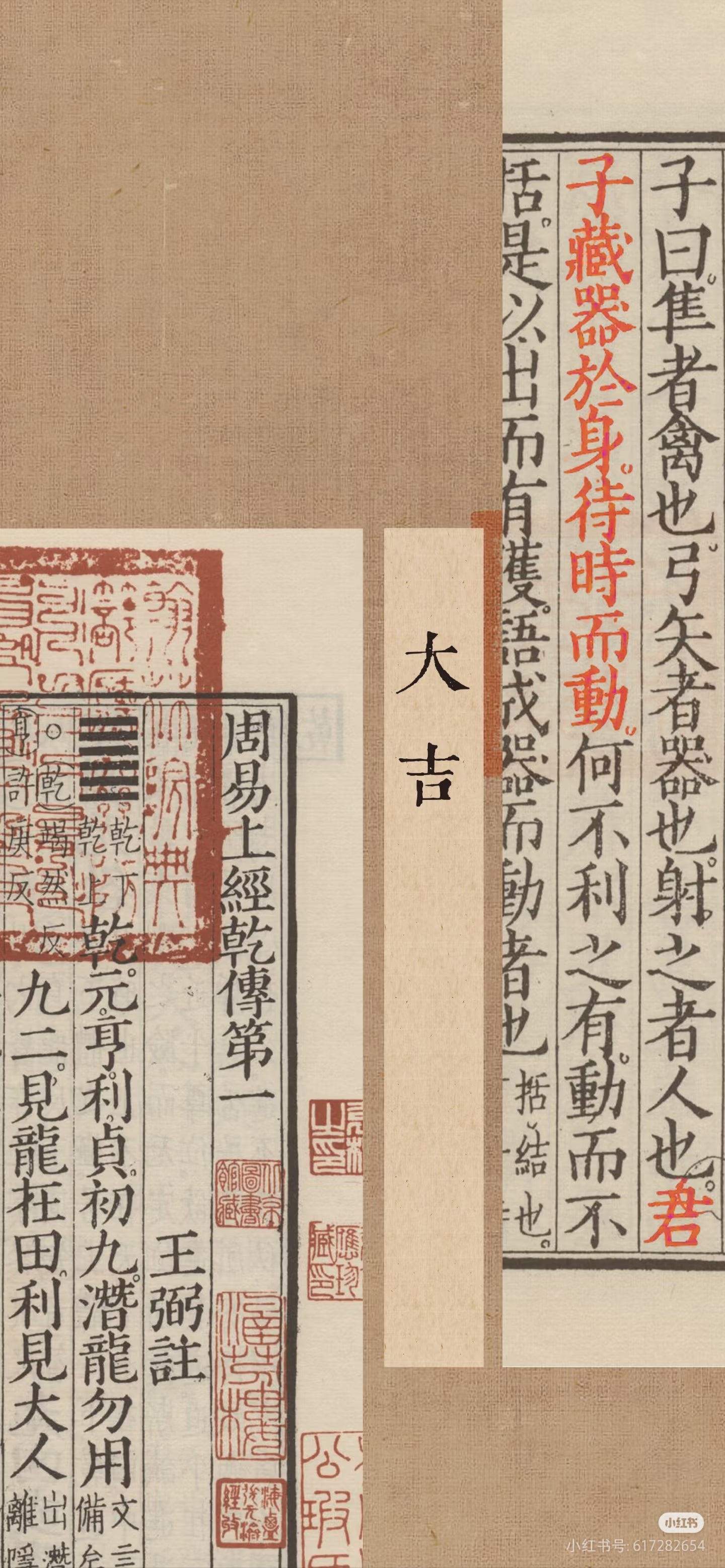Hexagram 51, Line 1
The Arousing (震)
九初:震來虩虩
The Line Text
九初:震來虩虩,後笑言啞啞。吉。
The first shock comes, "Ch'i, ch'i!" Afterwards, laughter and talk, "Ha, ha!" Good fortune.
The Commentary says: "The first shock comes, 'Ch'i, ch'i!'" means that fear can bring about good fortune. "Afterwards, laughter and talk, 'Ha, ha!'" means that afterwards, one can follow the rules.
Interpretation
This line depicts the very beginning of a startling event. The thunderclap is sudden and close, causing an immediate, instinctual reaction of fear and alarm (the sound "ch'i, ch'i!" or "xì xì" represents trembling and looking about in fear). This is a natural and appropriate response to a sudden shock. However, the story doesn't end in terror. The fear is temporary and serves a purpose. It sharpens the senses and forces a moment of intense self-examination and caution. Because of this heightened awareness, the individual is able to assess the situation, ensure they are safe, and understand the nature of the disturbance. The shock passes, and the initial fear is replaced by relief, signified by "laughter and cheerful talk." The experience, though initially frightening, is ultimately auspicious ("Good fortune"). The commentary explains that this fear is precisely what *leads* to the good fortune, because it enforces a necessary caution. The relief that follows comes from the realization that one has successfully navigated the initial danger and can now proceed with a new sense of order and understanding ("afterwards, one can follow the rules"). The shock has cleared the air and established a new, more stable reality.
Guidance for Action
You are likely experiencing a sudden and unexpected event that has shaken you to the core. Your initial reaction of fear, anxiety, or disorientation is completely normal and, in fact, useful. Do not chastise yourself for feeling startled. This jolt is a wake-up call. Use the adrenaline and heightened awareness it provides to carefully survey your surroundings and your inner state. Assess the situation with caution and prudence. The key is to not remain frozen in fear but to move through it. Once you have taken stock and ensured your own stability, the anxiety will subside. You will find that the event, while jarring, has ultimately brought clarity or removed a hidden obstacle. You will be able to breathe a sigh of relief and even laugh, having passed the test and learned a valuable lesson. This experience will establish a new and better-defined path forward for you.
For Love & Relationships
In a relationship, this line points to a sudden shock—perhaps a surprising revelation, a sharp argument, or an unexpected action from your partner that leaves you feeling alarmed and insecure. Your first instinct might be fear or confusion about the future of the relationship. This is a critical moment. The fear is a signal to pay close attention. Instead of reacting with anger or withdrawing, use this jolt to address the underlying issue with honesty and caution. If you can both navigate this initial shock without letting fear dictate your actions, you will find that it clears the air. The difficult conversation or event leads to a deeper understanding and a resolution of unspoken tensions. The "laughter" that follows is the relief and renewed intimacy that comes from successfully weathering a storm together, establishing new, healthier rules of engagement.
For Career & Business
You may be facing a sudden disruption at work: an unexpected reorganization, a project being abruptly cancelled, a harsh critique, or a move by a competitor that catches you off guard. The initial news is likely to cause panic and anxiety about your position or the company's future. This fear is a powerful motivator. Use it to immediately and carefully assess your situation. What vulnerabilities has this event exposed? What new information do you have? By responding with careful analysis rather than panicked reaction, you can navigate this disruption successfully. You may find that the change, while scary at first, ultimately opens up a new and better opportunity or forces a much-needed course correction. Once the dust settles, you will feel a sense of relief and renewed confidence, having proven your ability to remain steady under pressure.
For Financial Matters
This line suggests a sudden financial shock, such as an unexpected major expense, a sharp drop in the market, or a sudden loss of an income source. The natural first response is fear and worry about your financial security. This fear is a signal to act, but with caution, not panic. Do not make rash decisions like selling all your assets in a downturn. Instead, use this jolt as a catalyst to meticulously review your budget, your investments, and your overall financial strategy. The shock forces you to confront financial realities you may have been ignoring. By taking careful, measured steps to secure your position, you will weather this storm. Afterwards, you will feel immense relief and will have established a more resilient financial plan, bringing you greater peace of mind in the long run. The initial scare leads directly to improved financial discipline and security.


